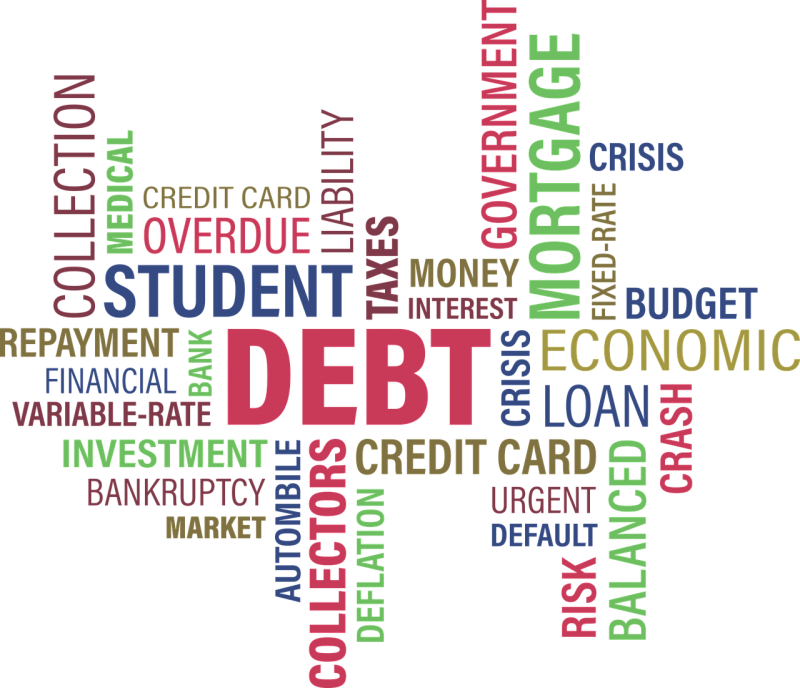No-Nonsense Advice About Debt First Time Borrowers Need To Know

Borrowing money is a safety net for anyone who experiences financial shortfall. It can become an instant resolution to unforeseen events and emergencies. However, there are still some borrowers who forget that every time they take out a loan, it requires them to be responsible when repaying it.
To break that cycle and practice, we have laid out the best advice every first-time borrower should know to protect them from being caught in a debt cycle and most importantly, damaging their credibility as borrowers.
All Types of Loan Are Available But...
All types of loan are available, but there's a catch. One of the most important things a first-time borrower should hear is that not everyone is eligible to be granted with a loan. This is where the credit score plays its role. If you haven't established a credit score yet, you should probably start now.
The problem with not having a credit score is that the credit bureaus don't have any reference to check to see if you are capable of paying out your loans. No credit is better than having bad credit, though, as rebuilding credit score is more complicated than starting one.
For all first-time borrowers, it is crucial to make sure you meet your repayment schedules to avoid having bad credit. Sometimes, mishaps are inevitable, making you miss a scheduled payment. To rebuild your credit score, the next time you file for a loan, make sure to ask your lender to get your credit report if you have bad credit.
The Difference Between Good Debt VS Bad Debt
This is also a prevalent mistake that every first-time borrower makes: differentiating between a good and bad debt. Borrowing money is for everyone as long as you can repay it. But sometimes, it is worth considering what your reason for borrowing is.
The best advice is to learn to define what, where, and why you need to take out a loan. By answering these questions, you can weigh your decision about whether or not borrowing money will be beneficial for you.
To help you with that endeavor, we classified both good and bad debt below.
Good Debt
Good debt is where you spend your money that will ultimately generate income or help you with your daily life. This includes business expansions, a house loan, or a student loan. All of these are considered good debts.
Student Loans
Student loans helped many aspiring students to finish their studies, even though perceived to be expensive.
In England alone, undergraduate studies for the academic year of 2020-2021 has an annual cost of £9,250. There is an increase of £11,100 in tuition fees for accelerated degree courses. For an individual from an average family, taking up a student loan can significantly aid them in getting through the burden of paying for their education.
Mortgage
A mortgage loan is the top-most good debt. Even though houses are considered property with depreciating value, having a roof above your head is more important and valuable. Getting a mortgage loan, as long as you are capable of repaying it in due time, is a good investment.
However, if you are residing in England and considering applying for a mortgage loan now amidst the ongoing pandemic, you might take time to reconsider that idea. Even though the housing market in England had reopened, buyers struggled to secure a mortgage loan even with a 10% deposit.
Business Expansion
Another good reason to use your borrowed money is to expand your business. It will help you generate more income, which you can use for the repayments. Especially now, if you are building a business in England, it is the best time to borrow money since the Bank of England is slashing its interest rate due to the economic shock brought by the coronavirus.
Bad Debt
Unnecessary expenses such as clothing and gadgets are considered as bad debt. Any purchase from a credit card that you can live without, already have but want an extra, or something you don't necessarily need is considered a bad debt. Hence, you must know what you want and what you need the most.
Debt Consolidation Is Possible
One last thing a first-time borrower should know is that when everything seems to be falling apart, and you are struggling to pay all your debt, debt consolidation is possible. This is the best alternative for you not to be caught in a debt cycle while still maintaining a good credit score. However, the best thing you can do is to catch up with all your payment schedule and make sure to clean up your new loan for it not to stack up once again.
Takeaway
Borrowing money nowadays is a bit easier for everyone who needs it. It is why many first-time borrowers indulge in taking out a loan even for unnecessary purchases and forgetting that they have the responsibility to repay it. Anyone planning to take out a loan should seek financial advice from experts before making their decision. This will help stop getting into a debt cycle and getting caught in a difficult situation which can be avoided in the first place.
More to Read:
Previous Posts:


